The Wychwood School curriculum follows the Ontario Curriculum for the elementary grades 1-8, but our academic rigour and expectations exceed that plan in every subject area and at every grade level we teach.
Teachers attend carefully to personal learning needs of students, and work with students and parents to strive for mastery at each level before advancing. Subject courses interlock thematically to optimize interest and learning.
Wychwood enriches students’ opportunities for learning and interaction with our community through field trips, and inviting guests into our school. In recent years, students have enriched their understanding of drama by attending a number of plays at the Young People’s Theatre. The science curriculum was supplemented by visits to the Ontario Science Centre, the Royal Ontario Museum, and the High Park Nature Centre. Art and history curricula were enhanced by visits to the Art Gallery of Ontario, the Aga Khan Museum, the Royal Ontario Museum, the McMichael Canadian Art Collection, and Wanda’s Creative Clay.
In the interest of helping our students to view the world as their classroom, Wychwood also launched a speakers series called “Cool Careers at Wychwood.” Over the years, our guests have included a former constable with the Ontario Provincial Police, a chess expert, an Ontario judge, a helicopter pilot, a primatologist, and others who have kindly come in to share their experiences in these various fields of human endeavor.
Math
The Wychwood mathematics curriculum is structured by a carefully selected evidence-based program.
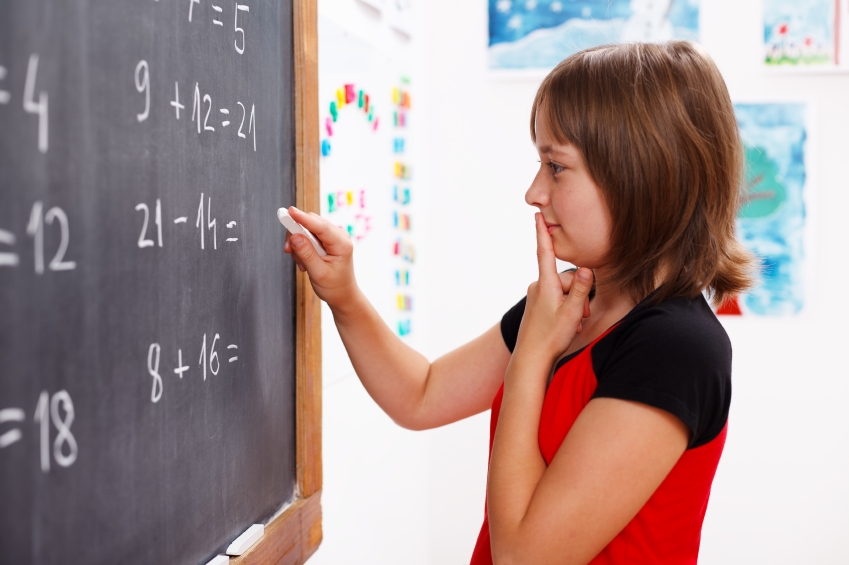
This program has been researched and found to significantly increase math achievement across the elementary years as compared with competing programs. Core themes include number sense and numeration, measurement, geometry and spatial sense, patterning and algebra, and data management and probability.
In addition to this program, the Wychwood curriculum teaches students how to memorize addition, subtraction, multiplication, and division facts, and engages students in regular “minute math” timed drills to help students build a strong base of operations facts. Mastering these basic operations in a timely way allows students to take on more sophisticated mathematical exercises throughout their elementary years and to experience success at each step.
We want our students to feel in control of their math learning, and to believe in the efficacy of ongoing practice coupled with timely corrections. The teacher models the positive steps for students to take when they feel confused about the material being presented. Students learn how to monitor their own responses to material, how to initiate questioning in productive ways, and most especially, they learn how to view mistakes for what they are – important stepping stones to mastery.
Regular chess practice is also part of the math curriculum at Wychwood School.
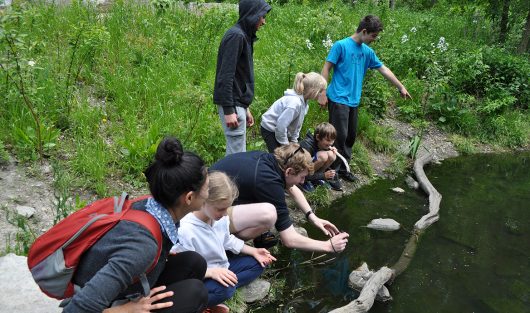
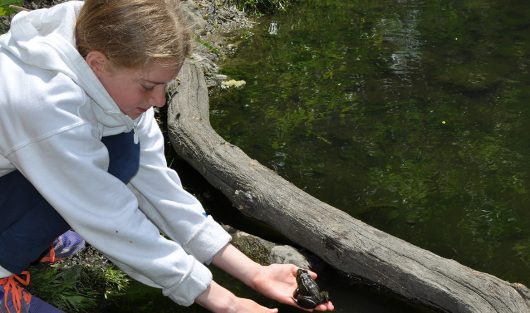
Students learn how these two endeavours operate as separate steps in the process of scientific inquiry, and how they affect each other in integral ways. Students learn the value of making conjectures and making efforts to refute those conjectures (instead of making efforts to confirm them), and learn the superiority of this method to a purely inductive mode of reasoning in the pursuit of scientific inquiry.
Themes are presented cyclically across the elementary years such that students leave Wychwood with successful experience with scientific inquiry and procedures within diverse subtopics of the overarching curricular emphases of life systems, structures and mechanisms, matter and energy, and earth and space systems. Some examples of themes treated in grades 3 and 4 are pulleys and gears, trees, weather systems, the solar system, and the human body. Wychwood students engage in asking questions, coming up with conjectures in response to their questions, and undertaking research to answer their questions. They complete projects individually and in pairs. They also take tests to track their progress in learning scientific concepts.
Wychwood Students Create Amazing Canada-Themed Machine for 2017 Rube Goldberg Contest.
Wychwood Students’ Canada-Themed Machine in Action: Here’s one way to apply a BandAid©!
Language
The primary objectives of the language program are to develop strong readers and writers.
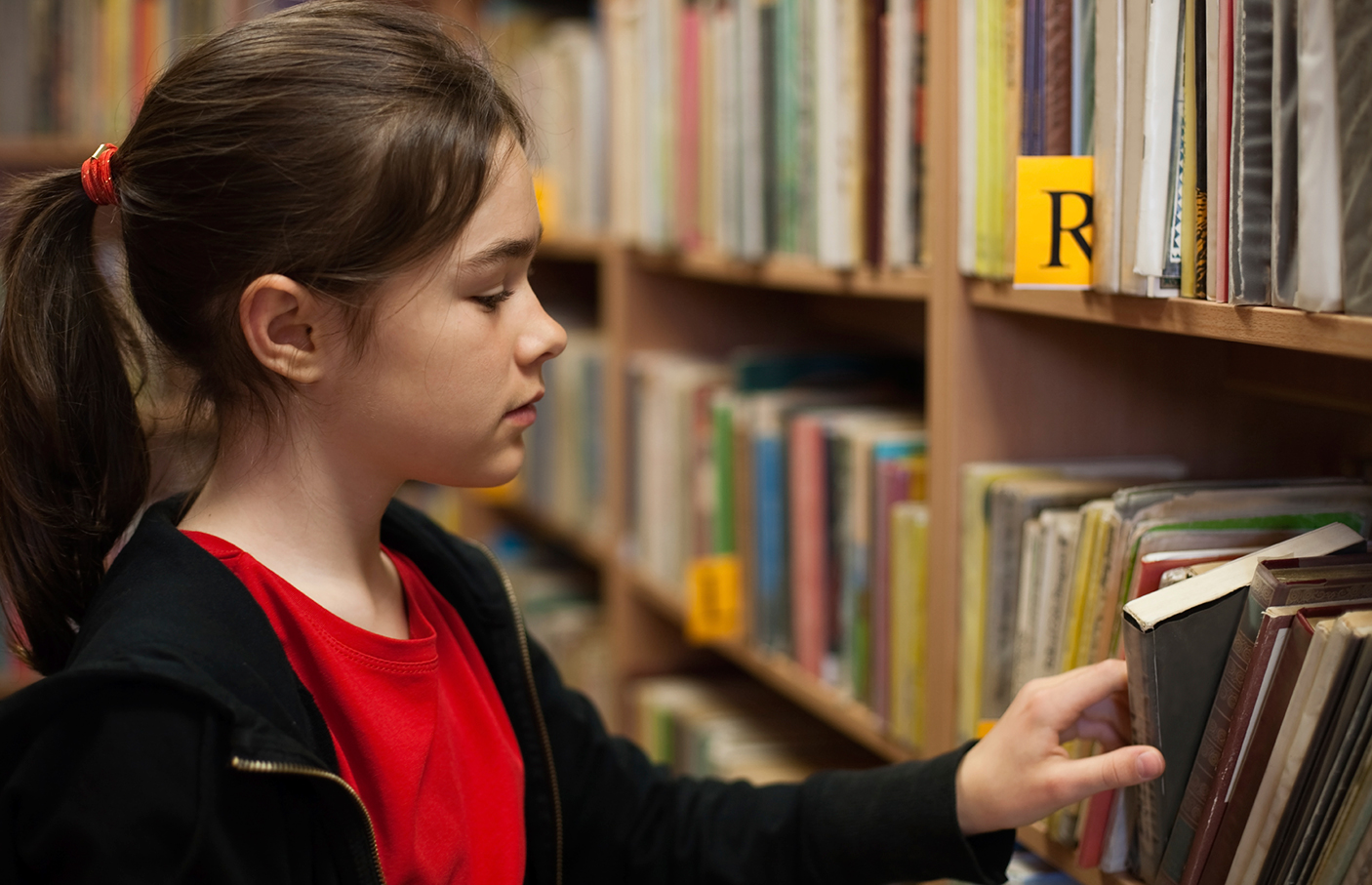
Our students read only the finest literary works for their age-group and only worthy examples of non-fiction writing. Because having the freedom to select her own reading material is extremely important in the elementary years, we encourage the student’s selection of reading material, but within the bounds of our extensive list of excellent works. Teachers read aloud to the students every day – and again, only the finest works. Daily reading comprehension exercises supplement the reading program.
The Wychwood language curriculum develops vocabulary through carefully-selected programs that foster age-appropriate understanding of semantics and syntax, morphology, and Greek and Latin word roots.
Direct instruction in grammar is a core component of the language curriculum. Students develop an appreciation of the beauty of the English language through understanding its components. Aesthetic appreciation also extends to the oral language, which is exercised through dramatic readings and recitations.
In non-fiction writing, students learn how to structure a compelling paragraph and to make basic arguments. Creative writing is also a very important component of a classical liberal arts education. Wychwood students learn how to write an effective story and experiment with writing various types of poetry. They come to understand the purposes of different genres. Students engage in draft, rewrite, error-correction, and final copy stages of writing, on selected fiction and non-fiction-writing assignments.
Social Studies
The elementary years are a time for discovering and inquiring about the physical, social, and cultural environments that one inhabits, for discovering the human roles at work in each, and for becoming aware of one’s own roles in these contexts.
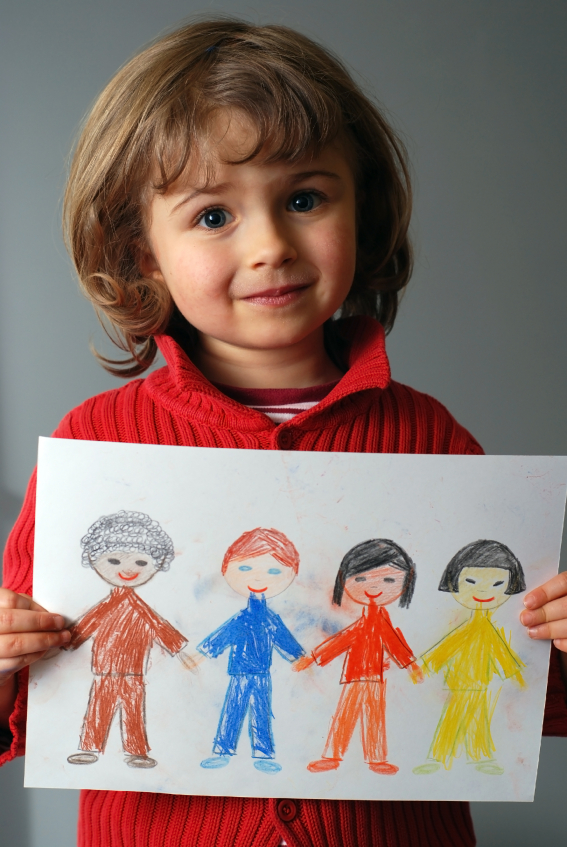
Students will learn about the interactions of each of these components through focused themes structured to enhance understanding. For example, in the “Working in Ontario” theme, students explore the concept of remunerated employment and how and why persons initiate, sustain, change or terminate employment. They may explore various fields of employment, and individual careers within those fields; look at how employment pscienceractices have changed over time; write dialogue and role-play situations related to the theme; and engage in mapping exercises related to the topic.
Projects and tests also enhance deeper exploration of the material. Related math, science, and language concepts are incorporated to create a meaningful conceptual network for the students. Focused themes will vary across instructional years. Excursions are planned to encourage first-hand experiences with and questioning about the concepts studied in the classroom, and visitors with valuable expertise in particular areas will come in and share their experiences and respond to questions and comments from Wychwood students.
French
At Wychwood School, our goal is to present French language through oral, aural, reading, and writing activities that are fun and educational.

Because learning a second language takes time and requires regular exposure, students’ enjoyment at each stage is a priority. We use diverse methods for motivating students to engage in the levels of practice that produce aural comprehension, correct pronunciation, excellent grammatical skills, and appreciation of the beauty of the French language. Methods include choral work, role-playing, dialogue memorization, dictées, video models, direct grammar instruction, and tests, among others.
Health & Physical Education
Daily physical activity is crucial to children’s development and sense of well-being.
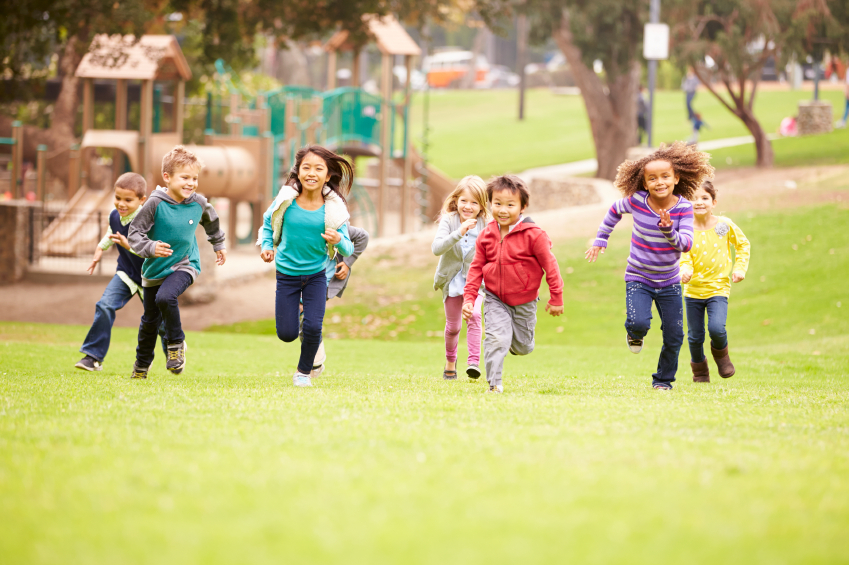
Therefore, our students get outside every day for recess, barring extreme weather conditions. The more structured physical education program acquaints students with a number of sports and athletic activities through 2-week introductory sessions, such as Badminton, Baseball, Cross-country, Jumping Rope, Soccer, Tennis, and Track and Field, among others. The health curriculum focuses on decision-making concerning healthy nutrition, exercise, sleep schedules, and the balancing of work and play in our daily lives.
Cursive & Keyboarding
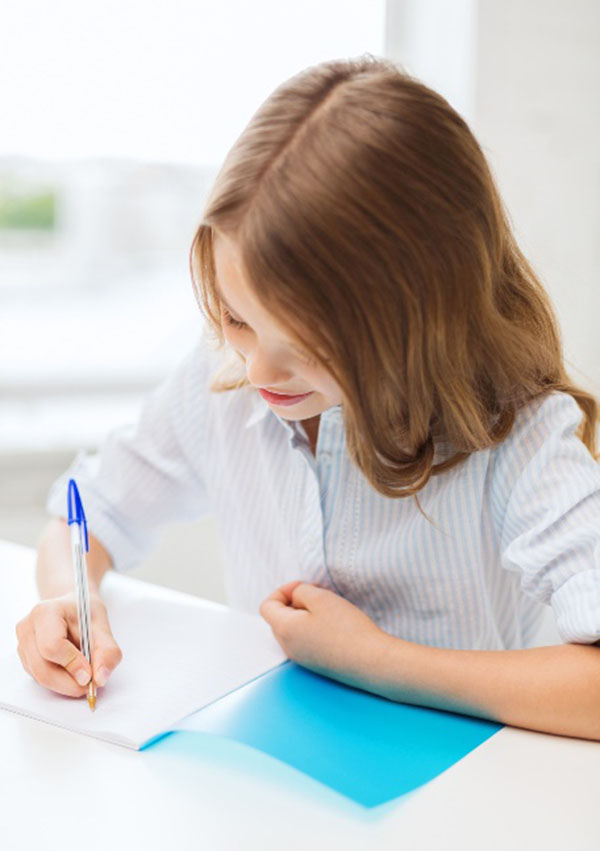
Beginning in Grade 3, basic proficiency in the mechanics of writing is achieved through careful attention to correct procedure in cursive writing. At that time, students also begin to work on keyboarding without looking at their hands and are expected to be fully proficient in keyboarding skill within two years.
Arts
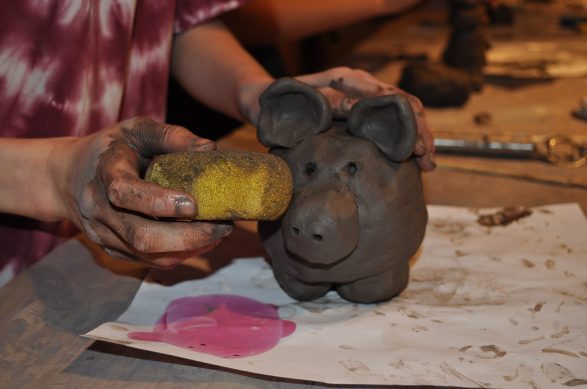
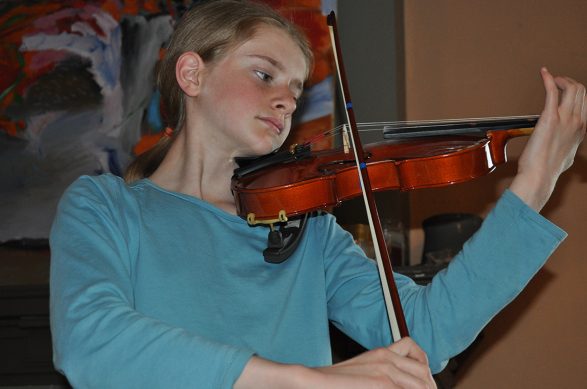
Visual Art
Wychwood students will have opportunities to make works of art in such varied media as clay, watercolour, printmaking, and sculpture.
They will learn about the importance of line, shape, form, value, space, colour, and texture in the visual arts. They will also engage in a more in-depth study of drawing and painting in which they learn techniques for representing figures, portraits, and animals.
Music
The primary objective of our music program is for students to enjoy listening to and making music with their peers.
Students listen to music, sing, and move in rhythm. They also learn about duration, pitch, dynamics, and other expressive controls, timbre, texture, harmony and form. They learn about different musical instruments, performance styles, genres of music, and concert protocols through regular excursions to concerts and rich discussion of their concert experience afterwards in the classroom. Classroom visits by musicians who play a variety of instruments also enrich the Wychwood music program.
